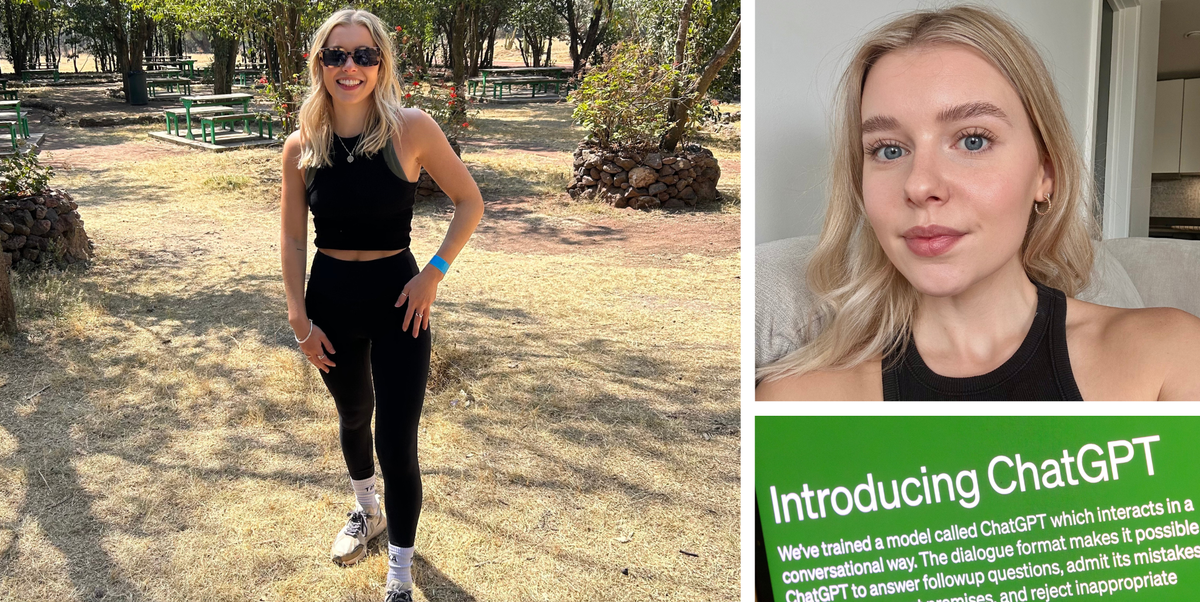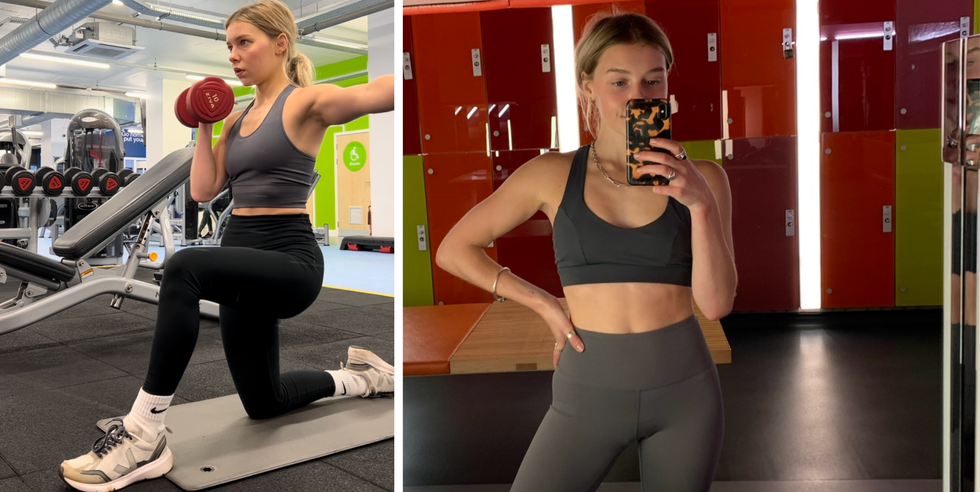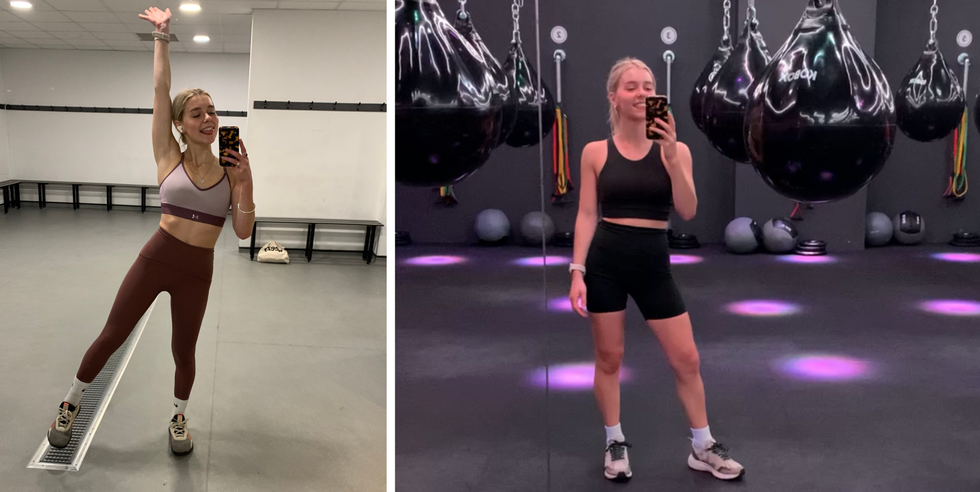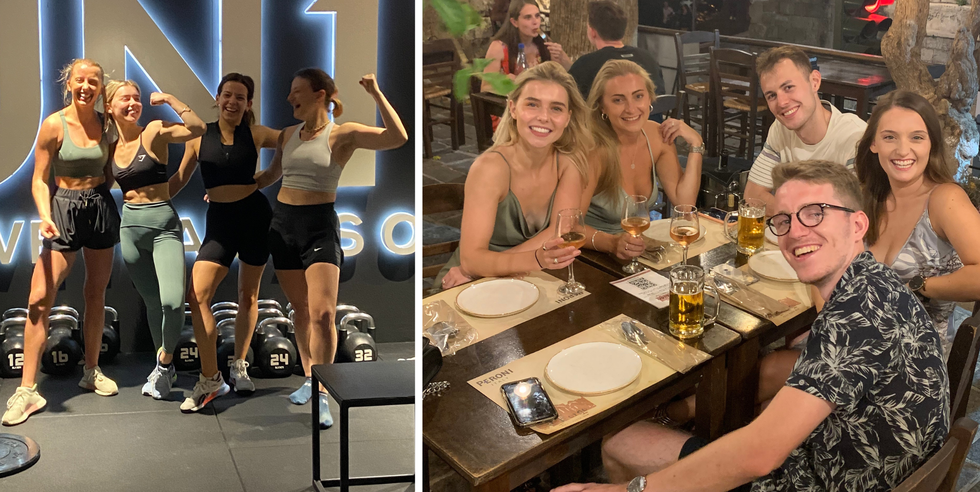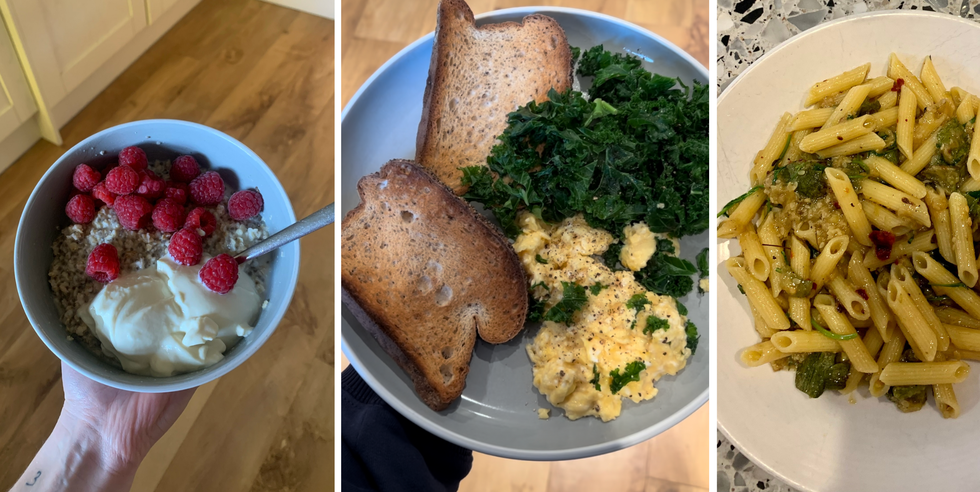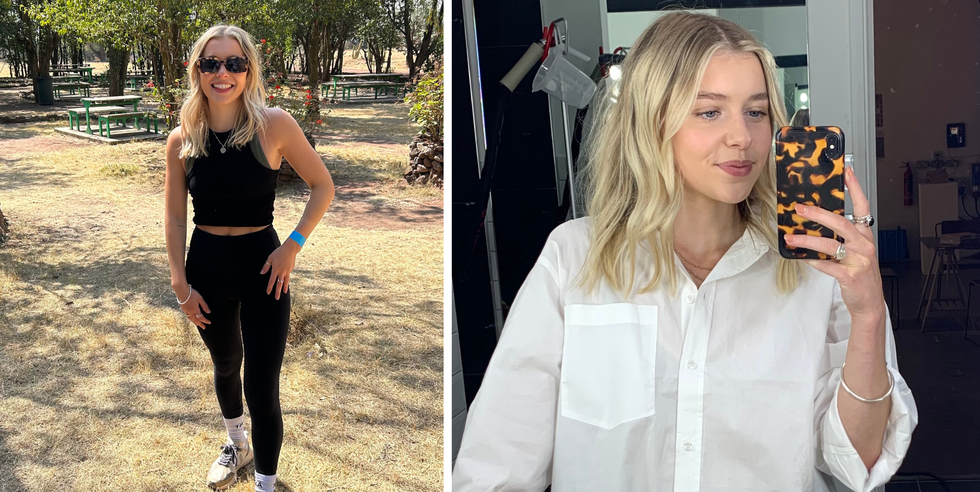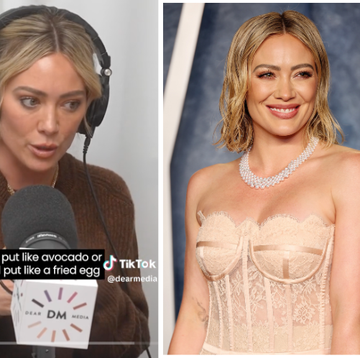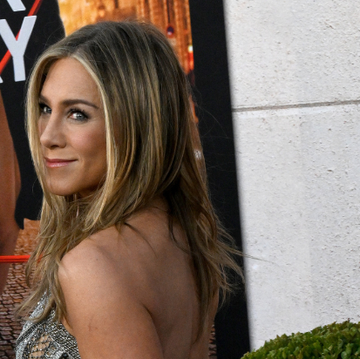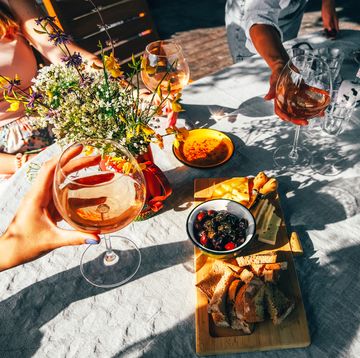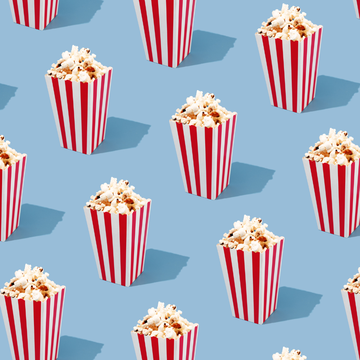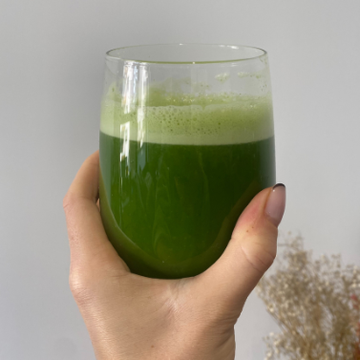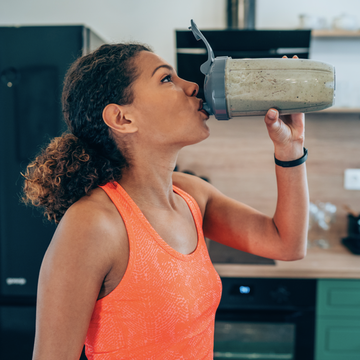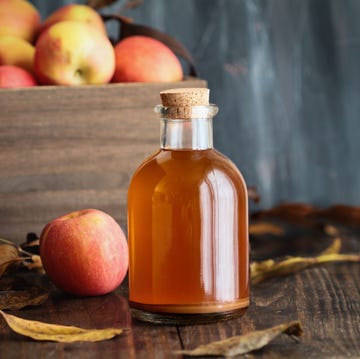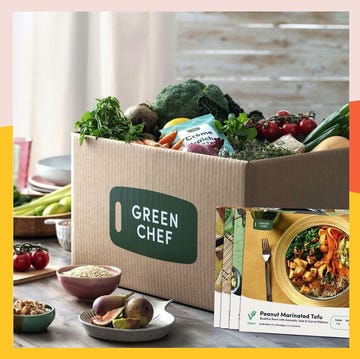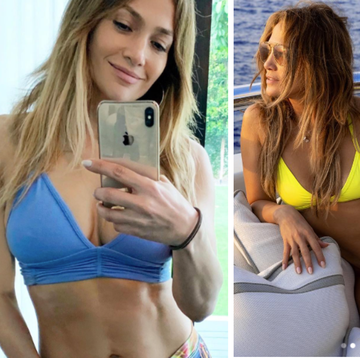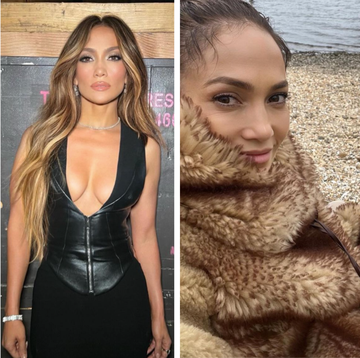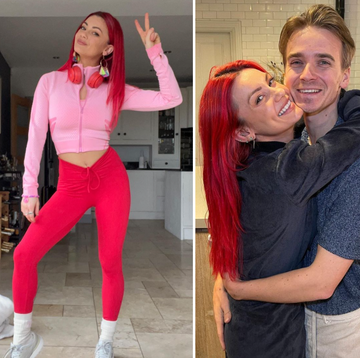As you've probably spotted, the Writer’s Guild is currently on strike in the US, asking to not be replaced by AI-generated scripts. As a writer myself, I’m worried. Sure, AI articles and scripts are unequivocally bad (protest signs read ‘AI came up with 10 suggestions for this sign and they all sucked’ and ‘AI has never been in love’). But it’s clear that the dystopian, sci-fi future of losing jobs to robots is here.
I shouldn’t be the only one concerned about AI coming for my day job, either. Nutrition professionals, beware: ChatGPT meal plans are going viral on TikTok, with creators using AI to replicate advice given by health experts.
For the uninitiated, ChatGPT is essentially an artificial intelligence chatbot that can answer almost any question by scouring the internet and distilling information. In one of the most popular videos on the app, creator @mellyssalise expresses amazement at the seven-day, 'endometriosis-friendly', 'hormone-balancing' meal plan that ChatGPT generated for her, and has made several follow-up videos demonstrating how her followers can do the same.
It’s clear why generating AI meal plans are is such an appealing prospect. The sheer volume of nutrition advice on the internet is overwhelming and it's often contradictory. Getting access to a dietician on the NHS if you're not battling a serious illness is notoriously difficult. And private clinics for IRL dietician appointments are too pricey for most to access.
Now, I believe I know a thing or two about eating well for my body – I’ve been writing about wellbeing for over five years which has given me access to some of the best experts in the business, and trying to manage my IBS has sent me into research holes that would rival a PhD.
However, some recent health concerns involving heavy and painful periods have me wanting to look at the hormonal impact of how I eat. And as the cost of living crisis means my haphazard approach to cooking is impacting my bank account, the prospect of a free, instantly-available meal plan targeted to my needs became all the more alluring.
And yet...when it comes to nutrition something that claims to be quick, free - and, crucially, simple - often falls short by multiple metrics and can, in impressionable hands, be downright dangerous.
So, it's with equal parts optimism and journalistic scepticism that I create an Open AI account and decide to follow TikTok's latest viral nutrition trend to ask: is the nutrition advice spat out by ChatGPT as bad as the writing?
How do you create a ChatGPT meal plan?
Coming up with the perfect command is crucial for the chatbot to generate the correct response, so I think hard about what to include in my request. I factor in the non-negotiables, including food allergies (I haven’t eaten dairy for around 10 years) and preferences (no matter how good fish is for you, I just can’t eat the stuff).
I tell the chatbot I need to eat enough to support my regular exercise routine – a mix of heavy strength training, mid-distance running and Pilates, as well as averaging a daily step count that’s well into the five-figures.
I try out a few variations to find something that works, and end up with this prompt:
'Make me a weekly meal plan that's suitable for someone who regularly exercises. It needs to include pre-workout snacks and desserts.'
'I am dairy free and I don't like fish but like my meals to be affordable, nutritious and good for my hormones.'
First, ChatGPT sends me a list of meal suggestions. I’m pleasantly surprised by how good the meals sound, including breakfasts of avocado-0n-toast, fresh quinoa salads for lunch and turkey chilli or roast chicken for dinner.
It also factors in two snacks a day such as an apple and almond butter or rice cakes with hummus, and dessert suggestions include baked fruits, chocolate and coconut-based yoghurts.
I send the general plan to Jennifer Medhurst, a nutritionist who fuses nutritional science with a joyful approach to food in order to best support her clients.
‘I actually think this is a pretty good meal plan,' she says.'There’s loads of fresh vegetables and whole grains and a lot of diversity which are the basis of a thoughtful, beneficial meal plan.'
'Of course, this doesn’t account for individual’s needs or symptom management, but I’d be impressed if someone visited me in clinic to say they were eating this,' she adds.
So far, so good. With a nutritionist confirming this plan would likely do me more good than harm, I ask ChatGPT to send me the full recipes and a grocery list. That's when things got...worrying.
Chat GPT meal plans halved my calories
The portion sizes are small compared to what I’d normally eat: breakfast consists of just one slice of bread, which is mouthfuls away from my usual hefty bowl of oats, chia seeds and protein powder topped with nut butter and and fruit.
A lunch recipe for a chickpea salad – which would be a classic go-to for me – was made with under half a tin of beans mixed with five cherry tomatoes, a quarter of a cucumber, a handful of green leaves, a tablespoon of olive oil and a few other seasonings. Yikes. I’d usually double that serving, or at least serve it alongside a thick slice of sourdough with hummus.
Out of curiosity and concern, I download a calorie counting app. It’s been a long time since one of these existed on my phone - I once tracked religiously, but realised that seeing a number on screen was preventing me from eating the nutrients and calories I knew I needed.
Deleting food trackers let me follow my natural hunger cues and load up the aforementioned portion sizes without guilt - so it was slightly stomach-lurching to find my ChatGPT meal plant would likely only come to around 1500 calories a day with 60g of protein and 145g of carbs.
Given that active females are advised to eat 2200-2400 calories (per the above, I don't track my calories; but it's a figure I'm pretty confident I eat within) this recommendation feels worryingly low.
More concerning still, when I ask the chatbot to adjust the meal plan for my height and weight, it tells me to reduce some of the portion sizes – not surprising given I’m just 5ft1, under the average size of a woman – but concerning that I’d be eating even less food than the tiny amounts originally presented to me.
I'm shocked that I'm encouraged to consume such a small amount of food - especially when I've explicitly said I want to eat to support my intense workouts, have a relatively low weight and BMI and have never listed weight loss as a personal goal.
The AI does add this disclaimer though: ‘Remember that everyone's nutritional needs are different, so it's important to listen to your body and adjust your portion sizes accordingly. If you feel like you need more food to fuel your workouts, you can increase the portion sizes slightly or add in an extra snack or meal.’
Could AI reinforce restrictive ideas of what 'healthy' looks like?
Still, reading over the meal plan made me feel uncomfortable. Yes, weight loss is a fine goal for anyone who wants or needs to work towards it for their health. But it's worrying and dangerous when society assumes that all women interested in exercise and healthy eating want to lose weight. It feels like a slide backwards.
What troubled me about my meal plan wasn't simply the portion sizes or calorie counts. Look closer and it’s clear the meals also fall within quite a narrow standard of 'nutritious' – there’s no white potato on the menu, only sweet spuds, and there are no spoonfuls of ice cream or plates of pasta, despite all of these foods having their place in a nutritious, balanced, diet.
'It's a very idealised version of a healthy diet,' agrees Medhurst. 'I'm very much a believer in there's a place for everything in diet and food freedom being a huge part of health, and the foods in this meal plan might not be as easily stuck to if you were going out to eat or sharing food with friends.'
I’d go so far as to say it felt like a throwback to Instagram’s clean-eating era, when vice and virtue became so intertwined with food that eating any white carbohydrate or processed food was framed as a moral transgression.
At the same time as living my life according to my calorie tracker, I fell into the hole of believing that slaving over the stove frying unseasoned chicken breast was healthier for me than popping out for a veggie-loaded spaghetti puttanesca with friends.
Now, I still love ‘health’ foods – seeded loafs and fresh salads make up a huge part of my diet, and if there’s Tenderstem broccoli on a menu, you bet I’ll be ordering it.
But my version of health isn’t so...hierarchical now. I worry that this meal plan is treading some old ground when it comes to ‘good’ and ‘bad’ or ‘clean’ and ‘dirty’ foods.
It's worth noting that this narrow specific view of health is an issue with AI as a whole - not just AI nutrition advice. Recently, ASICS led a campaign highlighting AI’s failure to showcase body diversity when asked to generate images of ‘fit’ people.
Despite us all knowing that what we look like isn’t a reflection of our health and fitness, AI platforms exclusively created images of people with low body fat and big muscles that 72% of viewers believe present an unrealistic body type.
There have also been worries about AI generating sexist and racist content, with a 2022 study from John Hopkins University finding robots act out toxic stereotypes. When shown a face of a Black man, the AI was 10% more likely to select the word 'criminal' than 'person' - a truly disturbing finding. In the same study, images of women (of all ethnicities) were less likely to be selected than men when the robot searched for 'doctor'.
Such grim findings are perhaps not surprising when you remember that ChatGPT works by condensing the internet’s advice, where misinformation is ride.
'AI can certainly reinforce bias and binaries if you train the models using already biased data,' explains Megha Gupta, head of artificial intelligence at AI mental health brand Wysa. 'To get around this, you have to explicitly develop the AI away from these ideas during the training phase.'
She also believes that: 'For any kind of prescriptive AI, it is also worthwhile to have a human in the loop for validation in case of a disorder or anomaly – in this case of meal plans, the existence of any body dysmorphia, health concerns or an eating disorder'
Interestingly, it's not only the biases of the internet at large that have health professionals worried. Leading health psychologist Dr Sula Windgassen, who works to improve the mental health and physical symptoms of those with health conditions, is also concerned about how our own bias can show up when using AI.
'Diet and meal plans that are computer-generated are not sufficiently personalised to take into account particular health and psychological factors. This is especially problematic when the individual running the search is not aware of the importance of particular factors for them,' she says.
'For example, someone with IBS may have a lot of anxiety around food and want to restrict their intake. Unlike in consultation with a human expert, AI won’t be able to detect these psychological factors, and using the programmes to create "safe" diet plans can actually perpetuate problems.'
Is there a safe way to use AI-generated meal plans?
It's a complex question. On the one hand, yes, I can weed out bad information. The beauty of ChatGPT is that I can easily adapt my prompt until I get a suitable programme, telling it I need more calories or bigger portions and it delivering instant adaptations such as an extra slice of toast at breakfast and encouraging me to use ‘large’ potatoes.
And yet, this requires a fair amount of nutritional - and self - knowledge; it's unlikely those who are just getting started on their nutrition journey will be as attuned to what they seen, compared to someone whose relationship with f0od has been on a bumpy journey.
Research indicates that maintaining conviction in what you know about your body could be even harder with the advent of AI. Researchers from the University of Georgia found that the harder a task gets, the more likely we are to trust a computer than ourselves or other humans to find the answer.
For nutritionist Medhurst, ChatGPT meal plans can go some of the way to helping improve our health, but can’t be relied upon. 'The number one thing I see in clinic is people struggling with consistency. If these meal plans help people get to grips with the basics of healthy eating, it can be a good start. But as with all non-expert nutrition advice, they should be inspiration, not a prescription,' she says.
But both Medhurst and Dr Windgassen caution against anyone currently struggling with disordered eating turning to ChatGPT for nutrition advice.
As for me? I haven't assigned my plan to my digital trash. It's currently reducing the mental toll of a weekly shopping list by generating some meal ideas (I’ll definitely be stocking up on fruit, rice cakes and nut butters to stop myself spending money on emergency protein bars at Sainsbury’s Local) but not I'm not following the recipes or serving sizes to the gram.
ChatGPT meal plans are the equivalent of an AI-generated TV script: fast and convenient but lacking soul, experience and - ultimately - the true been-there-done-that knowing of what it's like to be in my body.
